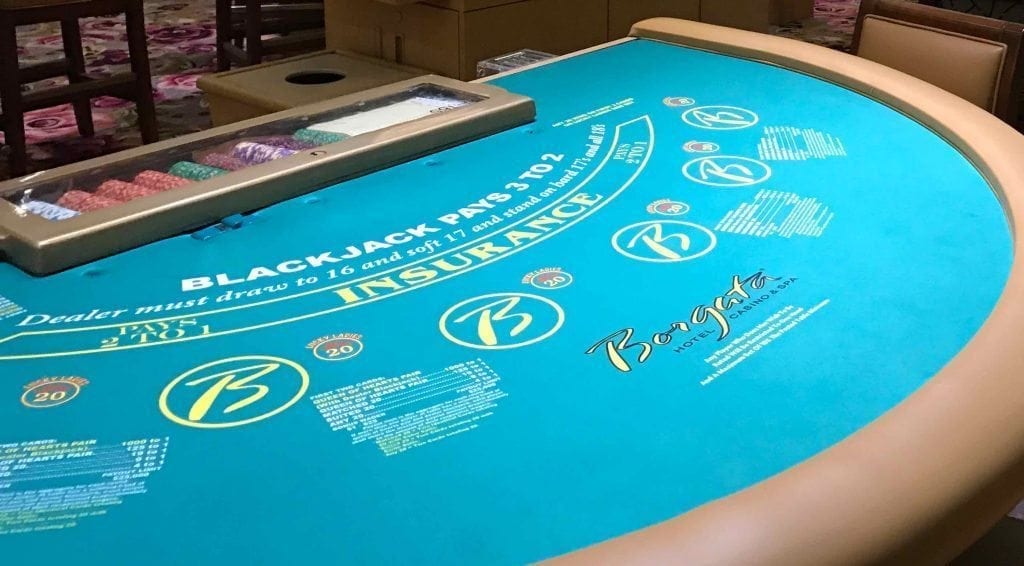
“Why did you hit? You ruined it for the table.” – Players Decisions in Blackjack
If you have played Blackjack for any length of time, I am certain you have heard table mates scolding other players with, “Why did you hit? You ruined it for the table.” Or perhaps you heard, “ The book says, you have to stand or you will take the dealers break card.” It is a very commonly held misbelief that the play of other people at the table has a negative effect on the results for the other players. I know you think I am wrong but let me explain, starting with some background. In Blackjack there is a mathematically supported way to play every possible hand. It was devised in the 1950’s and became widely available in Ed Thorp’s 1963 card counting work Beat the Dealer. The strategy is now available all over the internet for single and multi-deck games. It is commonly known as Basic Strategy or “The Book.”
Blackjack Basic Strategy
Blackjack basic strategy is not a composition-dependent strategy. In other words, the decisions do not take into account which cards have been played already. It is a total-dependent strategy, therefore decisions on whether to hit, stand, double down or surrender are solely based on comparing the total of the player’s hand to the dealer’s face-up card. There is no question that each player following the rules of basic strategy, is playing his hand in the optimal fashion and as a result, cutting the dealer’s advantage to the absolute minimum. However, the incremental advantage gained against the dealer’s edge, by playing basic strategy, does not translate to the other players at the table. A player that varies from the rules of basic strategy and takes a hit when they should not, ONLY AFFECTS THEIR OWN chance of winning the hand. Their decision can just as much help the dealer as hurt the dealer. Conversely, a player that stands when basic strategy says to hit or double, is just as likely to make a card available to hurt the dealer as help him.
Related: Casino Gaming | Video Poker vs. Blackjack
Let Us Prove It
The great gaming mind, Michael Shackleford of the Wizard of Odds website, once conducted a simulation. He used a multi-deck game with late surrender and dealer standing on soft 17 with splitting up to four times including aces allowed. The results of the simulation are on his website, but here is an interpretation, with some literary license on my part:
Scenario #1
In the first seat is player #1, Ima DaBest. In the second seat is player #2, Stu Pidasso. Each played perfect basic strategy.
The result after 1.6 billion rounds was Ima DaBest’s loss was 0.289%. Stu Pidasso had a loss of 0.288%.
Scenario #2
Everything remained the same except Stu Pidasso changed his strategy to always hit his total of 12-16, always double 9 to 11, split any pair, never surrender, never soft double.
This time the result after 1.05 billion hands was Ima DaBest’s loss was 0.282%, basically the same as the first simulation. On the other hand, Stu Pidasso had a significant loss of 11.260%!
In the LONG RUN….
Sure, you can easily remember the times that you were playing blackjack when another player deviated from basic strategy, resulting in the dealer turning a 16 into a 21, against your pair of kings. Sometimes that happens. It sticks in your mind because as humans we are conditioned to remember negative experiences. It may be frustrating, but next time you sit at the table and another player’s “mistake” costs you a hand, try to remember that the math proves that in the LONG RUN, the decisions of other players at the table has no effect on the expected result for a basic strategy player.
Be sure to also check out: Four Steps to MASTER Basic Strategy for Blackjack
The Inveterate Gambler has had a keen interest in casino games and the casino industry for more decades that he likes to remember. Craps, Blackjack and some Pai Gow Poker are his games of choice. He also enjoys playing in the home poker game were wild cards and luck overcome skill. He has no interest in slots and if there were no table games he would never set foot inside a casino. He is an expert on the Atlantic City scene. Like Batman, Superman, The Green Hornet, and a host of his other comic book heroes, The Inveterate Gambler must keep his true identity secret.












